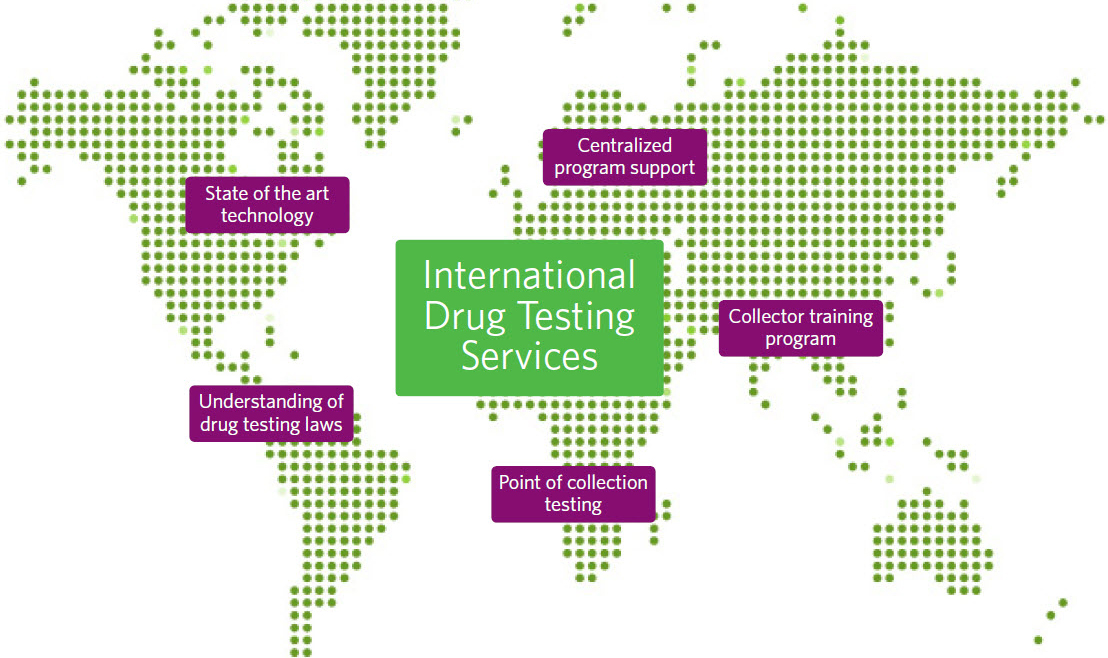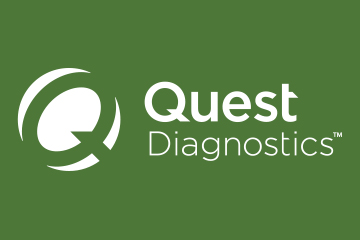 Quest Diagnostics is a sponsor at this year’s International Forum for Drug & Alcohol Testing (IFDAT) conference in Belfast, Ireland. The conference enables employers and industry providers to share best practices, learn about new developments, and find ways to improve efficiency in the international employee screening process.
Quest Diagnostics is a sponsor at this year’s International Forum for Drug & Alcohol Testing (IFDAT) conference in Belfast, Ireland. The conference enables employers and industry providers to share best practices, learn about new developments, and find ways to improve efficiency in the international employee screening process.
Coleen Volksdorf, Manager of International Services at Quest Diagnostics, was recently featured in the IFDAT Global Insider, a publication that features the latest trends and information about international drug and alcohol testing.
In your experience with dealing with collection facilities, what are the differences between American businesses and those outside of the United States?
From my perspective, U.S.-based service providers involved in international business sometimes have a tendency to treat their dealings in other countries with the same one-size-fits-all strategy that they employ domestically. In my opinion, this is often a mistake that can undermine the success of a business venture.
A better approach is often to be flexible and adaptive, taking into consideration that specific countries look at how business is done from their unique perspective. For example, personal relationships and trust are often important factors contributing to the success of an international deal. As such, there’s often misalignment with regards to the sense of urgency with which business is conducted. American business is fast-paced, deadline-focused, and heavily reliant on technology – like email – to foster progress, and to help ensure that the deal gets done. In contrast, negotiations with a global partner may take weeks and sometimes even months as the key stakeholders take their time to develop relationships and carefully weigh their options. Taking a personal approach, as opposed to one based solely on fast-paced progress, will often pay off with mutually beneficial, long-term results.
What are the key questions employers need to ask when setting up a program for international collections?
When vetting an international program, most companies ask basic questions, such as whether or not drug testing is legal and what test methodology should be used in a particular country. These are valid questions, but to really be able to move forward, employers should also be determining the following:
- In what countries/cities are our facilities located?
- In what is the country do we have the greatest need?
- What is the expected volume in each area where testing will be conducted?
- What is the reason for testing?
- What job functions will be tested?
- Do we have an existing global drug testing policy in place?
- Are we testing U.S. citizens and/or foreign nationals?
Making these determinations at the beginning of the process will allow providers to create a program that best fulfills the employer’s needs.
How can employers who have the need to test internationally create realistic expectations for their clients?
Creating realistic expectations is all about educating the client on the culture and requirements for each country they are entering. Employers look to you – the service provider – as the expert, and as such, you should make sure you know and can speak to:
- The culture and laws of each country prior to entry
- The requirements for program development
- The difference in turnaround times in each country
- U.S. regulations for International business
How do you suggest employers begin to research the culture and laws in each country?
As drug testing grows internationally, so does the information available. There is a great deal of information available on the Internet. However, we always recommend that each employer speak with an attorney to ensure that they are minimizing their risk.
For more information about drug testing, visit our website.
 Your Privacy Choices
|
Privacy Notices
|
Terms
|
Language Assistance / Non-Discrimination Notice | Asistencia de Idiomas / Aviso de no Discriminación | 語言協助 / 不䈚視通知
Your Privacy Choices
|
Privacy Notices
|
Terms
|
Language Assistance / Non-Discrimination Notice | Asistencia de Idiomas / Aviso de no Discriminación | 語言協助 / 不䈚視通知















Coleen Volksdorf, Manager of International Services at Quest Diagnostics, was recently featured in the IFDAT Global Insider, a publication that features the latest trends and information about international drug and alcohol testing.
In your experience with dealing with collection facilities, what are the differences between American businesses and those outside of the United States?
From my perspective, U.S.-based service providers involved in international business sometimes have a tendency to treat their dealings in other countries with the same one-size-fits-all strategy that they employ domestically. In my opinion, this is often a mistake that can undermine the success of a business venture.
A better approach is often to be flexible and adaptive, taking into consideration that specific countries look at how business is done from their unique perspective. For example, personal relationships and trust are often important factors contributing to the success of an international deal. As such, there’s often misalignment with regards to the sense of urgency with which business is conducted. American business is fast-paced, deadline-focused, and heavily reliant on technology – like email – to foster progress, and to help ensure that the deal gets done. In contrast, negotiations with a global partner may take weeks and sometimes even months as the key stakeholders take their time to develop relationships and carefully weigh their options. Taking a personal approach, as opposed to one based solely on fast-paced progress, will often pay off with mutually beneficial, long-term results.
What are the key questions employers need to ask when setting up a program for international collections?
When vetting an international program, most companies ask basic questions, such as whether or not drug testing is legal and what test methodology should be used in a particular country. These are valid questions, but to really be able to move forward, employers should also be determining the following:
Making these determinations at the beginning of the process will allow providers to create a program that best fulfills the employer’s needs.
How can employers who have the need to test internationally create realistic expectations for their clients?
Creating realistic expectations is all about educating the client on the culture and requirements for each country they are entering. Employers look to you – the service provider – as the expert, and as such, you should make sure you know and can speak to:
How do you suggest employers begin to research the culture and laws in each country?
As drug testing grows internationally, so does the information available. There is a great deal of information available on the Internet. However, we always recommend that each employer speak with an attorney to ensure that they are minimizing their risk.
For more information about drug testing, visit our website.